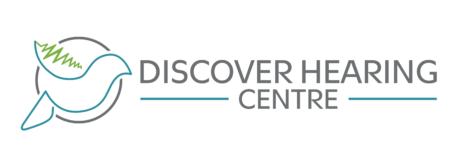Top 4 Major Causes of Hearing Loss

Hearing loss is more common than you might think, affecting millions of people worldwide. It can make everyday conversations challenging, impact relationships, and even take a toll on mental well-being. But the good news? Understanding the main causes of hearing loss can help you take steps to prevent it or seek early intervention. In this article, we’ll explore the top four major causes of hearing loss and what you can do to protect your hearing health.
How Hearing Works: A Quick Overview
Before diving into the causes, let’s take a moment to understand how hearing actually works. Your ear is a sophisticated system made up of three main parts:
- Outer Ear: This is the part you see, and its job is to capture sound waves and funnel them into the ear canal.
- Middle Ear: Here, sound waves make the eardrum vibrate, which in turn moves tiny bones (ossicles) that amplify the sound.
- Inner Ear: The cochlea, a spiral-shaped organ, converts vibrations into electrical signals, which are then sent to the brain via the auditory nerve.
Hearing loss generally falls into one of three categories:
- Conductive Hearing Loss: Occurs when sound can’t travel efficiently through the outer or middle ear.
- Sensorineural Hearing Loss: Happens when the inner ear or auditory nerve is damaged.
- Mixed Hearing Loss: A combination of both conductive and sensorineural factors.
If you’ve been noticing difficulty following conversations, especially in noisy places, or frequently asking people to repeat themselves, these could be early signs of hearing loss.
The Top 4 Major Causes of Hearing Loss
a) Age-Related Hearing Loss (Presbycusis)
One of the most common reasons for hearing loss is simply getting older. Known as presbycusis, age-related hearing loss happens gradually and often affects both ears equally. Typically, it starts with difficulty hearing higher-frequency sounds, like birds chirping or children’s voices.
A few key factors contribute to presbycusis:
- Genetics: If hearing loss runs in your family, you may be more prone to it.
- Long-term Noise Exposure: Decades of exposure to loud sounds, even at moderate levels, can wear down your hearing over time.
- Health Conditions: High blood pressure, diabetes, and smoking have all been linked to a higher risk of hearing loss.
What can you do to slow down age-related hearing loss?
- Get Regular Hearing Check-ups: Early detection means you can take steps to manage it sooner.
- Adopt a Healthy Lifestyle: Eating well, exercising, and avoiding smoking can all contribute to better hearing health.
- Protect Your Ears: If you know you’ll be around loud noises, wear earplugs or earmuffs to minimize damage.
b) Noise-Induced Hearing Loss (NIHL)
Exposure to loud noise is another major cause of hearing loss, and unlike presbycusis, it’s completely preventable. Noise-induced hearing loss (NIHL) can happen suddenly or develop gradually over time, depending on how much noise you’re exposed to and for how long.
Common sources of NIHL include:
- Work Environments: Construction sites, factories, and even music venues can have dangerously high noise levels.
- Recreational Activities: Concerts, sporting events, motorcycles, and personal audio devices can all contribute.
- Household Tools & Appliances: Power tools, lawnmowers, and blenders can reach harmful noise levels.
So, how loud is too loud? Sounds above 85 decibels (dB) can cause hearing damage over time. To give you some perspective:
- Normal conversation: ~60 dB
- Heavy city traffic: ~85 dB
- Rock concert: 110+ dB
To protect yourself:
- Wear Ear Protection: Earplugs or noise-cancelling earmuffs can help in loud environments.
- Take Listening Breaks: Give your ears a rest when exposed to prolonged noise.
- Keep Volume Levels Safe: Follow the 60/60 rule—listen at no more than 60% volume for no more than 60 minutes at a time.
c) Genetic and Hereditary Factors
Sometimes, hearing loss is written in your DNA. Genetic hearing disorders can be present at birth or develop later in life. Conditions like otosclerosis, Usher syndrome, and Waardenburg syndrome are all linked to hereditary hearing loss.
If hearing loss runs in your family, consider:
- Early Screening: Regular hearing tests can help detect any issues early.
- Genetic Counseling: This can provide valuable insights into your risks and potential interventions.
d) Medical Conditions & Ototoxic Medications
Certain health conditions and medications can also lead to hearing loss.
Health Conditions
- Diabetes: High blood sugar levels can damage the inner ear’s blood vessels.
- Heart Disease: Poor circulation can reduce blood flow to the ears.
- Ear Infections: Chronic infections or diseases like meningitis can cause permanent hearing loss.
Ototoxic Medications
Some medications are harmful to the ears, including:
- Certain Antibiotics (e.g., gentamicin)
- Chemotherapy Drugs (e.g., cisplatin)
- High-Dose Aspirin & NSAIDs (e.g., ibuprofen)
If you’re taking any of these medications, consult your doctor about possible alternatives or regular hearing tests to monitor changes.
Lesser-Known Risk Factors & Modern Lifestyles
Today’s lifestyles present new challenges to hearing health:
- Excessive Earbud & Headphone Use: Prolonged exposure to high-volume music increases the risk of hearing loss.
- Environmental Toxins: Exposure to chemicals like solvents and heavy metals can harm auditory function.
- Stress & Hearing Loss: Chronic stress and high blood pressure can impair circulation to the ears, leading to hearing issues.
Early Warning Signs of Hearing Loss
Wondering if you might be experiencing hearing loss? Here are some common signs:
- Difficulty understanding conversations in noisy places.
- Frequently asking people to repeat themselves.
- Tinnitus (ringing or buzzing in the ears).
- Needing to turn up the TV or phone volume higher than usual.
Prevention & Protecting Your Hearing Health
Taking care of your hearing isn’t complicated—it just requires some mindfulness. Here’s how:
- Get Regular Hearing Tests: Especially if you’re over 50, early detection can make a huge difference.
- Use Ear Protection: Whenever you’re exposed to loud environments.
- Follow Safe Listening Practices: Keep music volumes at safe levels and take listening breaks.
- Maintain a Healthy Lifestyle: Good nutrition and exercise contribute to better hearing health.
Treatment & Management Options
If you’re experiencing hearing loss, there are many options to help:
- Hearing Aids: These amplify sounds and improve communication.
- Cochlear Implants: A solution for severe hearing loss that directly stimulates the auditory nerve.
- Assistive Listening Devices: Tools like amplified phones and TV listening systems can enhance sound clarity.
- Support Groups & Counseling: Emotional support can help navigate the challenges of hearing loss.
Manage Your Hearing Loss With Discover Hearing Centre
Understanding the main causes of hearing loss is the first step in protecting your hearing. Being proactive can make all the difference, whether it’s presbycusis, noise exposure, genetics, or medical conditions. If you’ve noticed any changes in your hearing, don’t wait; schedule a hearing test with Discover Hearing Centre today.
Want to learn more? Check out our Understanding Hearing Loss Stages: Comprehensive Guide to see how hearing loss progresses and what you can do about it.
Visit our hearing clinic in Kitchener and schedule a hearing test with our professional experts. We offer comprehensive audiology services, from hearing tests and education to digital hearing aids and personalized hearing loss treatments that put you and your specific hearing health needs at the centre. Whether you need a hearing test, are looking for invisible hearing aids or require help with hearing aid fittings and programming, Discover Hearing Centre is here for you.
Discover Hearing Centre is a local clinic specializing in the treatment of hearing loss; we’ve worked with hundreds of patients to help them maintain independence. Whether you’re experiencing hearing loss or tinnitus, we’re dedicated to improving your quality of life through better hearing. When you choose us, you choose a team committed to your well-being.
Call us today at 519-208-4327 or fill out our convenient online form to learn more about how we can help you with hearing loss issues.
You Might Also Like
What Is Tinnitus? Causes, Symptoms, and Treatment Options
Does Tinnitus Get Worse With Age?
How Long Do Hearing Aids Last?
Have Questions?
Call our office if you have any questions about your hearing loss or anything else related to hearing. We are happy to help and answer any questions you may have.





